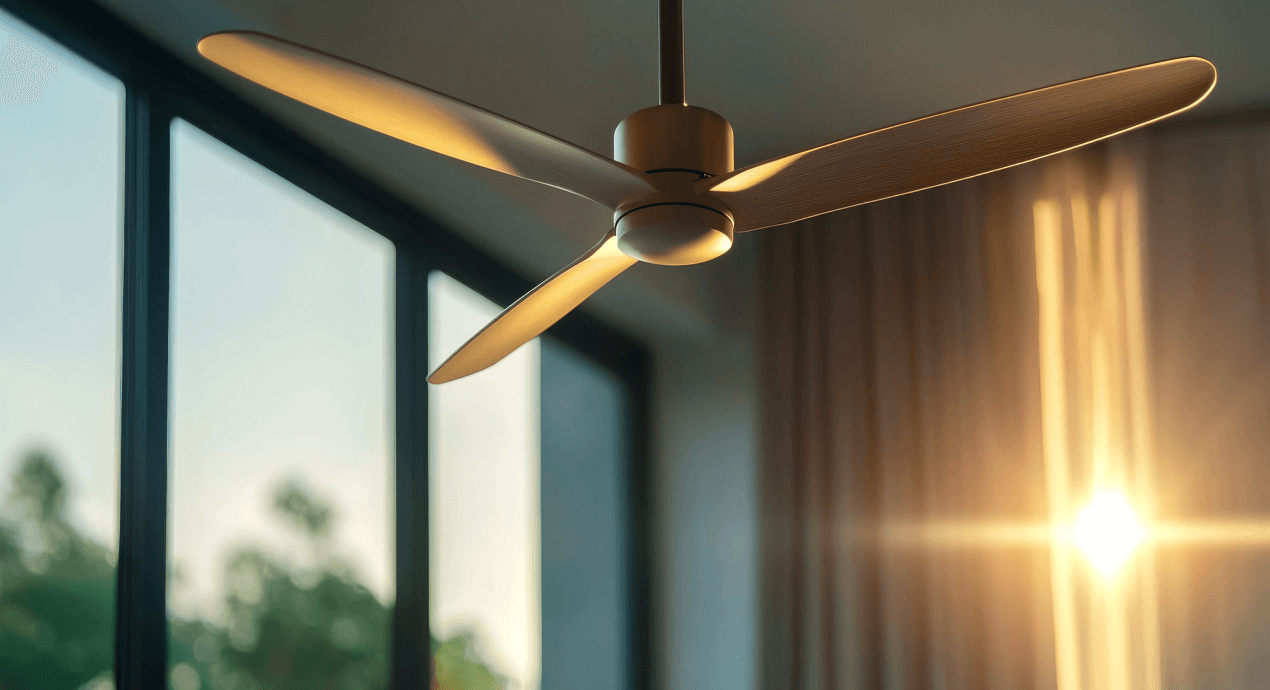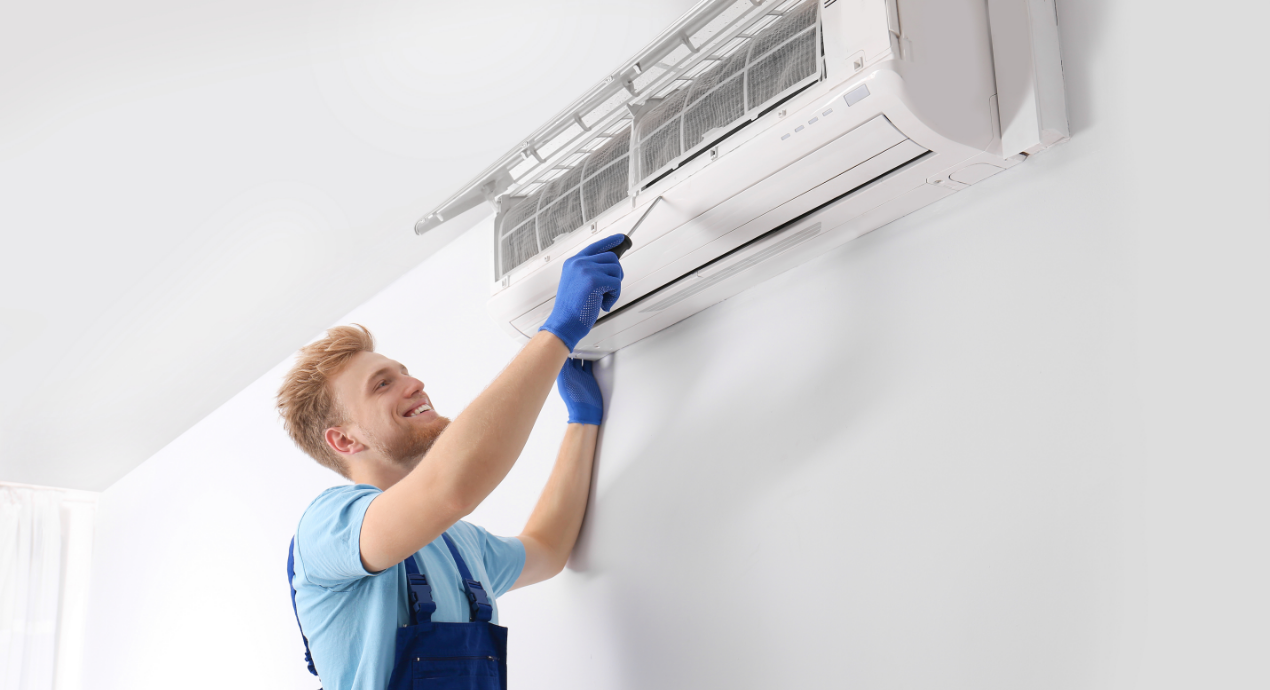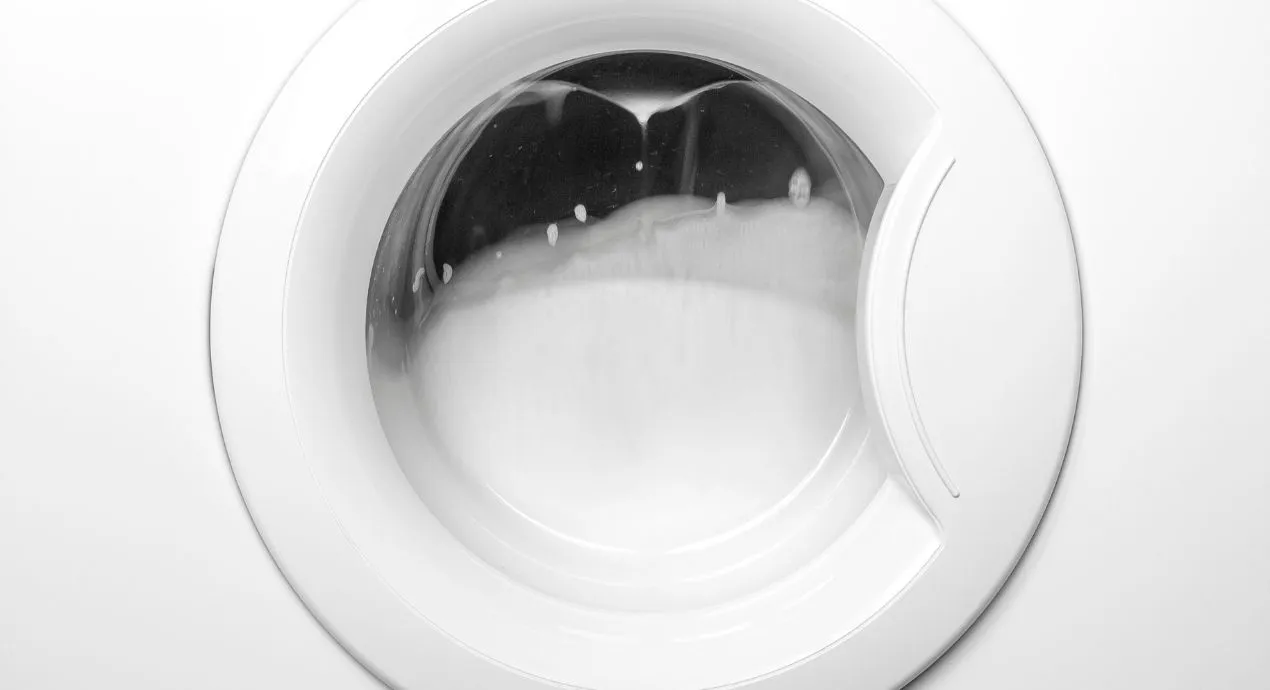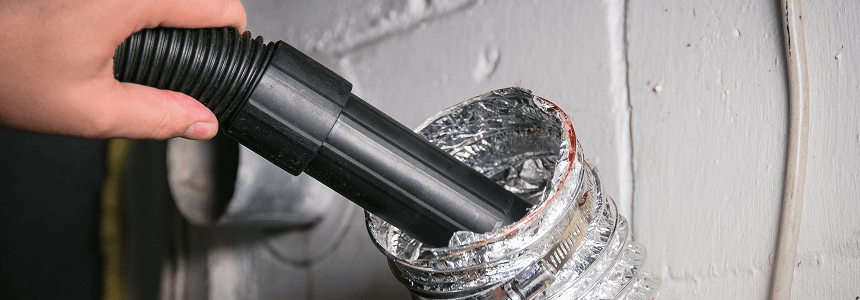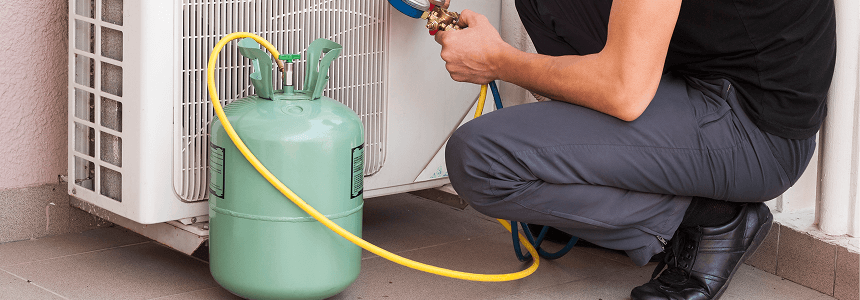- Most ceiling fan noises are caused by loose parts or imbalance. Tightening screws and balancing blades are often the fastest and most effective fixes.
- Different sounds point to different problems. Clicking usually indicates loose components, humming may suggest electrical issues, and grinding or squeaking often signals worn bearings or lack of lubrication.
- Routine maintenance can prevent noise issues. Cleaning blades, lubricating older fans (if required),and checking pull chains or debris can restore quiet operation.
- Call a professional if electrical or motor issues are suspected. Persistent humming, wiring concerns, or a failing motor may require expert repair or replacement.
A ceiling fan is a great way to keep a room cool and comfortable, but when it starts creaking, squeaking, or cranking, it can quickly become a source of annoyance. Indoor mechanical noise is a common annoyance; in one national survey, nearly 35% of people reported at least slight noise disturbance at home from building systems like ventilation and fans. Whether your ceiling fan is making noise when it rotates, hums, or rattles, there are several possible causes — and, luckily, just as many easy fixes. This guide will help you identify why your fan is noisy with step-by-step solutions to restore quiet operation.

Understanding the Causes of a Noisy Ceiling Fan
If your ceiling fan is making noise, it’s usually a sign that something’s off — whether it’s a loose part, an unbalanced blade, or even an electrical issue. Just like a doctor diagnoses a patient before administering treatment, it’s important to understand the cause of a noise before attempting any ceiling fan repair.
Common Types of Ceiling Fan Noises:
- Clicking or rattling: These noises are usually caused by loose components like screws, blade brackets, or pull chains.
- Buzzing or humming: These sounds can indicate electrical issues or a failing motor.
- Grinding or scraping: This can often be an indicator of worn-out bearings or misaligned parts.
- Squeaking or creaking: These noises are most often due to unlubricated moving parts or a warped motor housing.
- Rotating noises: This could result from unbalanced fan blades or debris caught in the motor.
Common Reasons Your Ceiling Fan Is Making Noise
1. Loose Screws and Components
Over time, the constant movement and vibrations from everyday use can cause screws in your ceiling fan to loosen — and there are a lot of screws in a fan, between the mounting bracket, blades, and motor housing. Even a slightly loose part can create an annoying, persistent noise.
This is especially common in older fans or ones that have been adjusted or moved frequently. If your fan has been running for years without a tune-up, checking for loose screws is a quick and easy first step to quieting things down.
2. Unbalanced Fan Blades
If your ceiling fan makes noise when rotating, the blades may be to blame. Unbalanced blades can happen due to warping, dust buildup, or improper installation. Fans with wooden or plastic blades are especially vulnerable to warping in humid environments. Newer fans may also become unbalanced if they were not installed with precise alignment.
3. Faulty or Old Motor
A worn-out motor can cause excessive humming or buzzing. Ceiling fans that have been in use for over a decade are more likely to experience motor wear, especially if they have been running at high speeds for extended periods. Lower-end fan models may also have less durable motors that wear out faster than premium ones.
4. Incorrect Electrical Connections
If the fan is wired improperly, especially with a dimmer switch instead of a standard fan switch, it may produce a humming noise. This issue is more common in homes where ceiling fans have been added to existing light fixtures without proper rewiring. If your fan was recently installed or replaced, check the wiring setup to rule out electrical causes of noise.
5. Lack of Lubrication
With so many moving parts, fans require regular lubrication. A grinding or squeaking sound is most often the result of dried out motor bearings.
Older ceiling fans with metal components are more likely to require lubrication, while many newer models come with permanently sealed bearings that do not need oiling. If your fan is making a grinding noise and is more than five years old, lubrication could be the solution.
6. Pull Chain Issues
If the pull chain gets tangled or is knocking against the light fixture or fan body, it can create a clicking noise. This is most common in ceiling fans with attached light kits, where the chain is more likely to swing freely and make contact with the fixture.
If your fan is in a room with high ceilings, the longer pull chains can be more likely to tangle or knock against the motor housing, creating unwanted noise.
7. Debris in the Motor Housing
Dust or small objects caught in the motor housing can create friction and lead to unwanted noise. This is especially common in ceiling fans installed in kitchens or outdoor areas where dust and grease can accumulate over time.
If your fan is making noise despite being properly balanced and secured, cleaning the motor housing may resolve the issue.
How to Troubleshoot a Noisy Ceiling Fan
If your ceiling fan is making noise, a little maintenance can go a long way. Follow these steps to quiet it down:
Step 1: Turn Off the Fan and Inspect It
Before getting started, turn off the electricity and wait for your fan to come to a complete stop. Use a sturdy ladder and have someone secure the base while you climb up to inspect your unit. Look for any loose, warped, or tangled components that could be the culprit of the noise.
Step 2: Tighten Any Loose Screws
Use a screwdriver to tighten all the screws on your fan. Even if the screws don’t visually appear to be out, a slightly loose screw can cause vibrations, leading to rattling or clicking noises. Pay close attention to the blade attachments, as these tend to loosen over time.
Step 3: Balance the Blades
If your fan wobbles or makes a thumping noise, the blades might be unbalanced. Use a balancing kit (available at hardware stores) or try taping small weights to the top of each blade until the fan runs smoothly. Misaligned or warped blades can make the fan shake, creating the noise.
Step 4: Lubricate the Motor (If Needed)
You may not have known it when you purchased your unit, but your fan may require regular lubrication. Check your manufacturer’s instructions to see if yours does. If so, apply a few drops of motor oil to the designated area to prevent squeaking or grinding sounds.
Step 5: Check for Electrical Issues
If your fan makes a loud humming noise, it could be due to improper wiring or being connected to a dimmer switch (which isn’t compatible with most ceiling fans). While it may be tempting to troubleshoot an electrical issue, it’s best to consult a professional. Hire an electrician to inspect the wiring and make any necessary updates.
Step 6: Adjust the Pull Chain
If your fan has a pull chain, try securing it so it stays in place. A chain that’s too long can swing around and hit the motor housing or light fixture while the fan is running. You can also try trimming it down to a shorter length if needed.
Step 7: Clean the Fan
Dust buildup can throw the fan off balance and cause noise. A quick clean may be the only thing between you and a noiseless fan. Wipe down each blade with a damp cloth and remove any debris inside the motor housing.
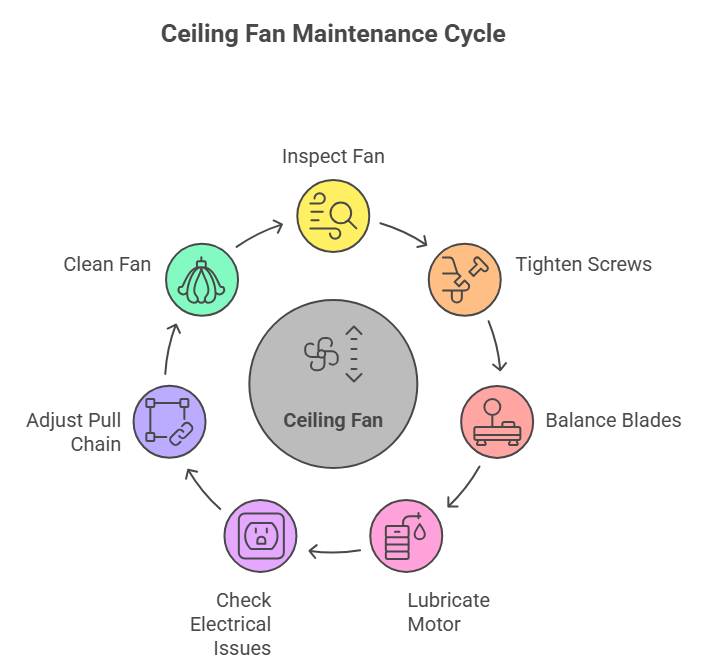
Quick Fixes for a Noisy Ceiling Fan
If you need a fast solution, try these quick fixes before considering professional ceiling fan repair:
- Tighten loose screws: The simplest fix is often just securing loose screws on the blades, motor housing, and mounting bracket.
- Rebalance the blades: If your fan wobbles while running, use a balancing kit or adjust the blade angles.
- Lubricate moving parts: Apply lubrication to the motor if required.
- Replace worn-out components: If the motor is old or the bearings are failing, replacing them may be the best option.
- Ensure proper installation: If your fan is installed incorrectly, noise issues may persist. Double-check the mounting bracket and electrical wiring.
When to Call a Professional
If your fan continues to make noise despite troubleshooting, it may be time to call a professional. Consider reaching out if:
- The motor is making excessive noise even after lubrication.
- There are electrical issues of any sort.
- The fan is still wobbly or unbalanced after all adjustments.
- The noise is due to a damaged or aging motor that may need replacement.
The Best Home Warranty Service
There’s a reason Liberty Home Guard was rated the #1 Home Warranty Service by U.S. News and World Report for 2021, 2022, 2023, and 2024. Check out our services.
Learn More


